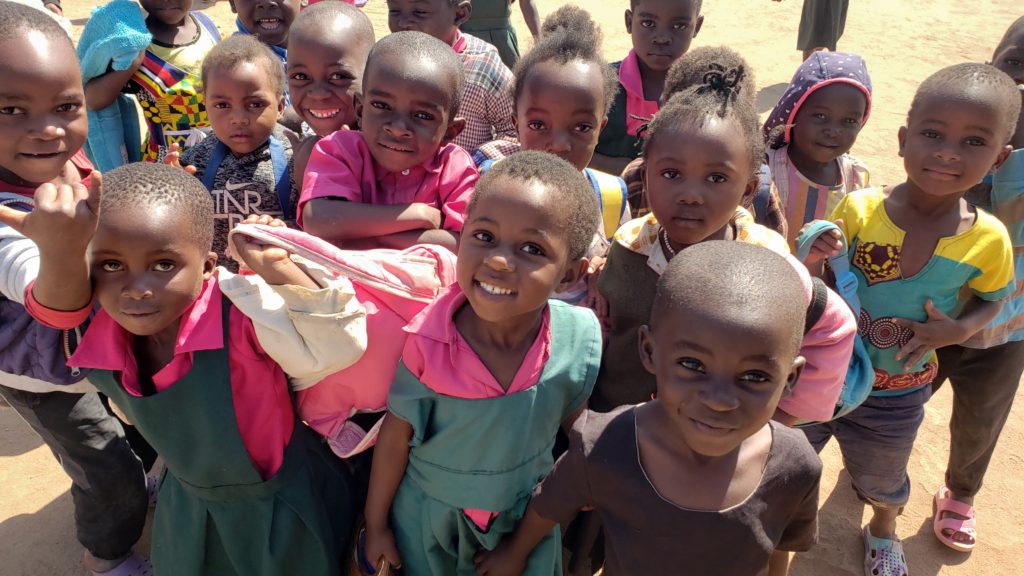Empower Minister Sally Bryant recently returned from her 12th trip to Malawi, where she has built meaningful relationships with people, and transformed the lives of many. Here is her report of her trip.
What does it mean to be “poor”? About 80% of Malawians are extremely poor, living on $2 a day or less, making them among the poorest people in the world. Economics is one metric of poverty, but it is not the only one. Although many Malawians are poor financially, they are wealthy in relationships.
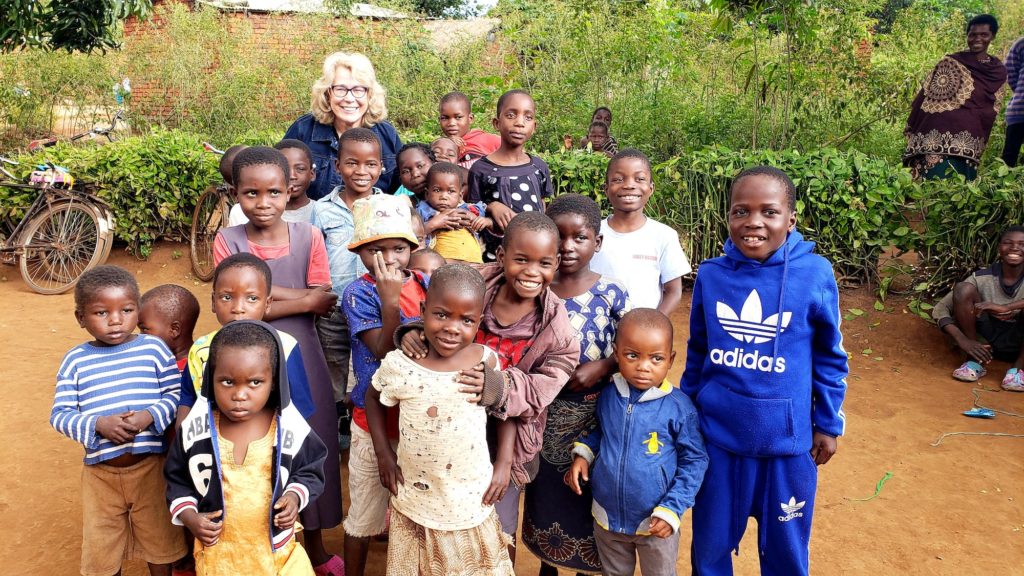
Relationships are the key to life in Malawi. From an American view, this can be frustrating because life is lived slower. There is always time to stop to talk to a friend, to welcome another. Village living is close living! And if you want to communicate, you don’t pick up the phone or shoot off an email. You go see the other person…in person. You build relational capital which lets you get an informal loan, or lodging for out of town visitors without a deposit, or even get into the secure part of the airport…which I was able to do this year to greet a fellow traveler from Saratoga Federated Church!
On this, my 12th trip, I realized that by coming for so many years to Malawi, I’ve built up abundant relational capital. In fact, when Pastor Arnold introduces me, he calls me a Malawian. And the people gathered respond with wild enthusiasm.
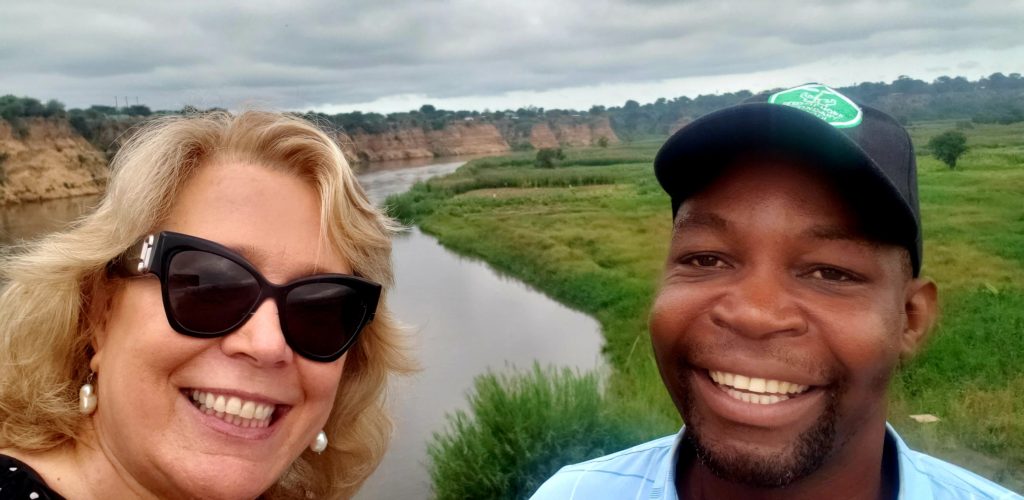
This year, I really saw the results of accumulating this relational wealth. We were in a new area in Malawi, right at the Mozambique border, teaching pastors what the Bible actually says about man, woman and marriage. Many in this area, including pastors, practice polygamy. It is the poorest area in Malawi. Men who want to marry must pay bride price…and if a man can afford to marry more than one woman, then he does.
In this extremely poor environment, often girls are seen as a way to increase the family’s wealth. The husband to be will pay a bride price, which may provide the family with several cows. Cows are how wealth is calculated. One of the proverbs in Malawi says, “If a man’s wife dies, she is easily replaceable. If a man’s cow dies, it’s a tragedy.”
In 2013, just days before I was to leave for Malawi, my father went into the hospital, and came home on hospice. I didn’t go to Malawi that year, and I knew the people wondered if I wouldn’t be back. When I returned in 2014, my credibility, commitment to Malawi and relational capital had radically increased.
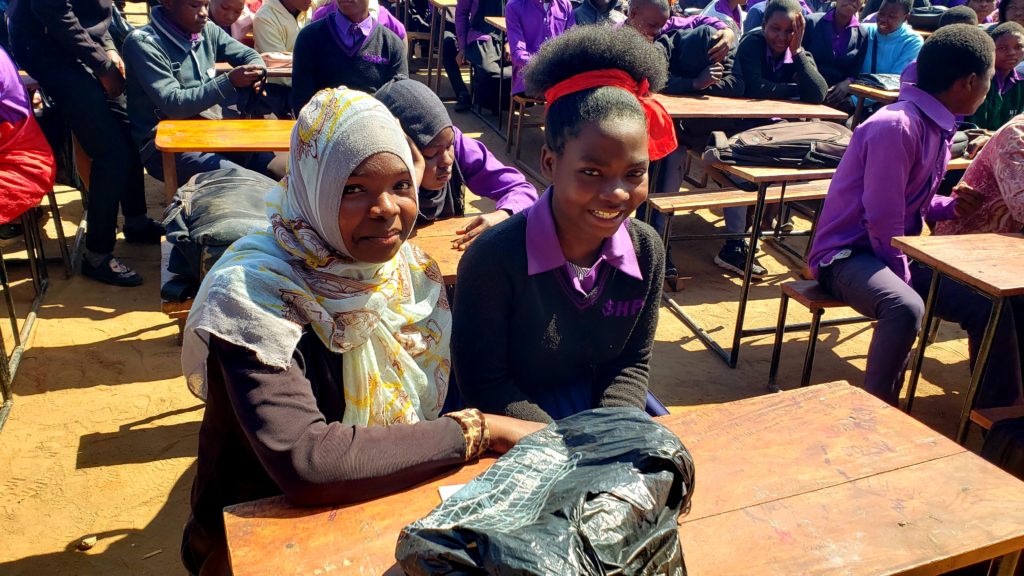
That year, when I taught on what the Bible really says about man, woman and marriage, there was a pastor in my workshop who encouraged the hyena practice – a practice where, when a girl reaches puberty, parents hire a man to “teach” their daughter how to “please” her husband–by assaulting her. (You can read our previous report on this horrific practice here.)
In effect, the man rapes the girl. This made world headlines when a BBC reporter met the main hyena and discovered that he was HIV/AIDS positive. After the workshop, the pastor realized that this practice was not in keeping with Scripture and he stopped it in his village. Without the relational capital I had built up by simply showing up year after year, this wouldn’t have happened.
Without trust and relational credibility, I wouldn’t have been welcomed by pastors in this area that practices polygamy. My message to pastors that both man and woman are created in God’s image, that they were created to be co-regents over God’s creation, wouldn’t have been heard. People don’t change strongly held beliefs because of information – they become willing to examine and change these strongly held beliefs because of relationship. Thanks be to God, I am now one of their relationship people.
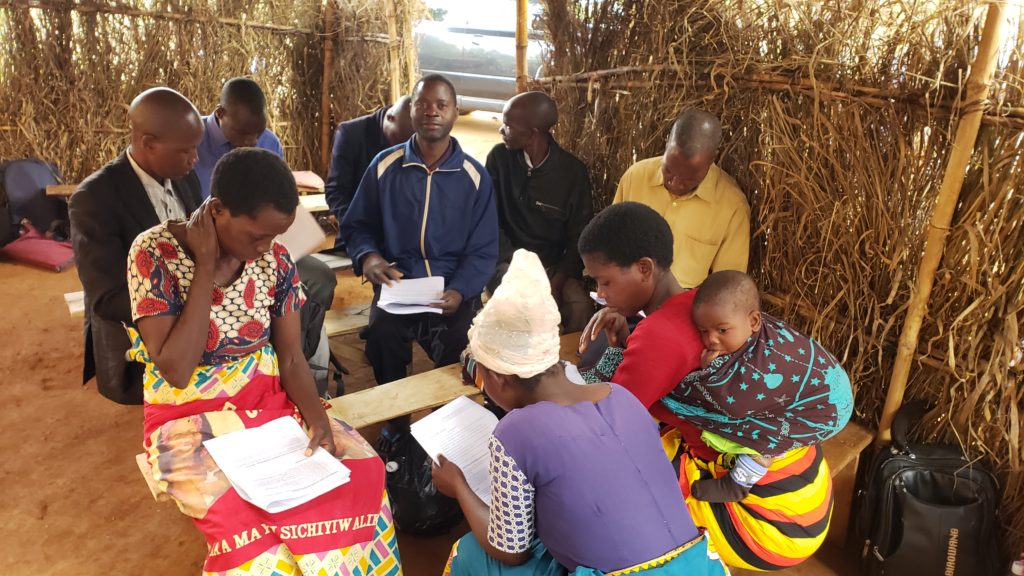
This year, in addition to leading a new group of pastors in a new area of Malawi through a three day discovery-based workshop on what the Bible really says about man, woman and marriage, I led a three day workshop on how to teach children without electricity, books, pencils or paper.
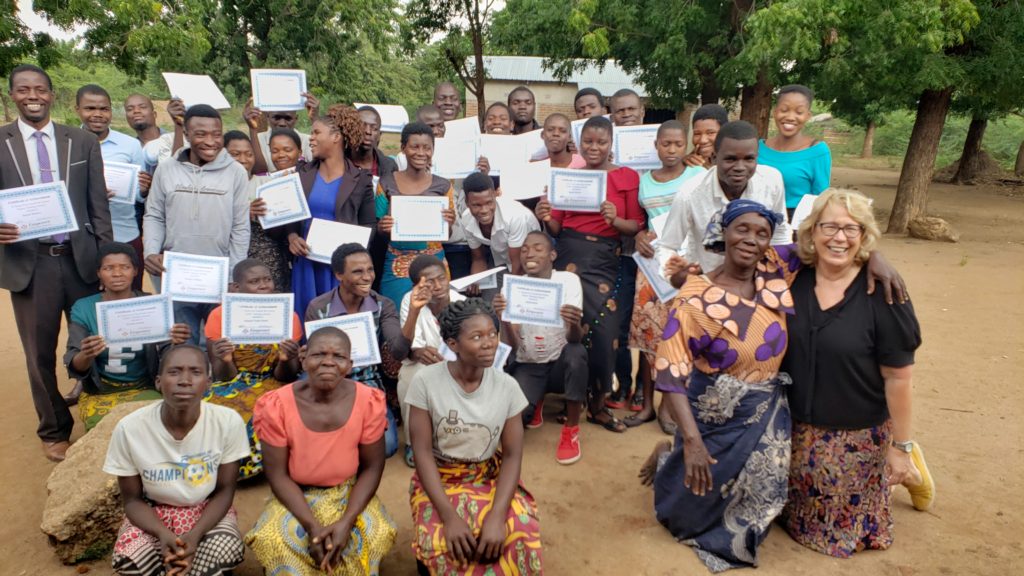
And I was able to provide each new “school” with individual white boards, dry erase pens, curriculum, alphabet charts, and phonics material. I visited four of our previously started nursery schools and found the children thriving, able to count up to 100, learning English and Scripture. I preached to a congregation that fully participated in the message, with many expressions of wonder and agreement. 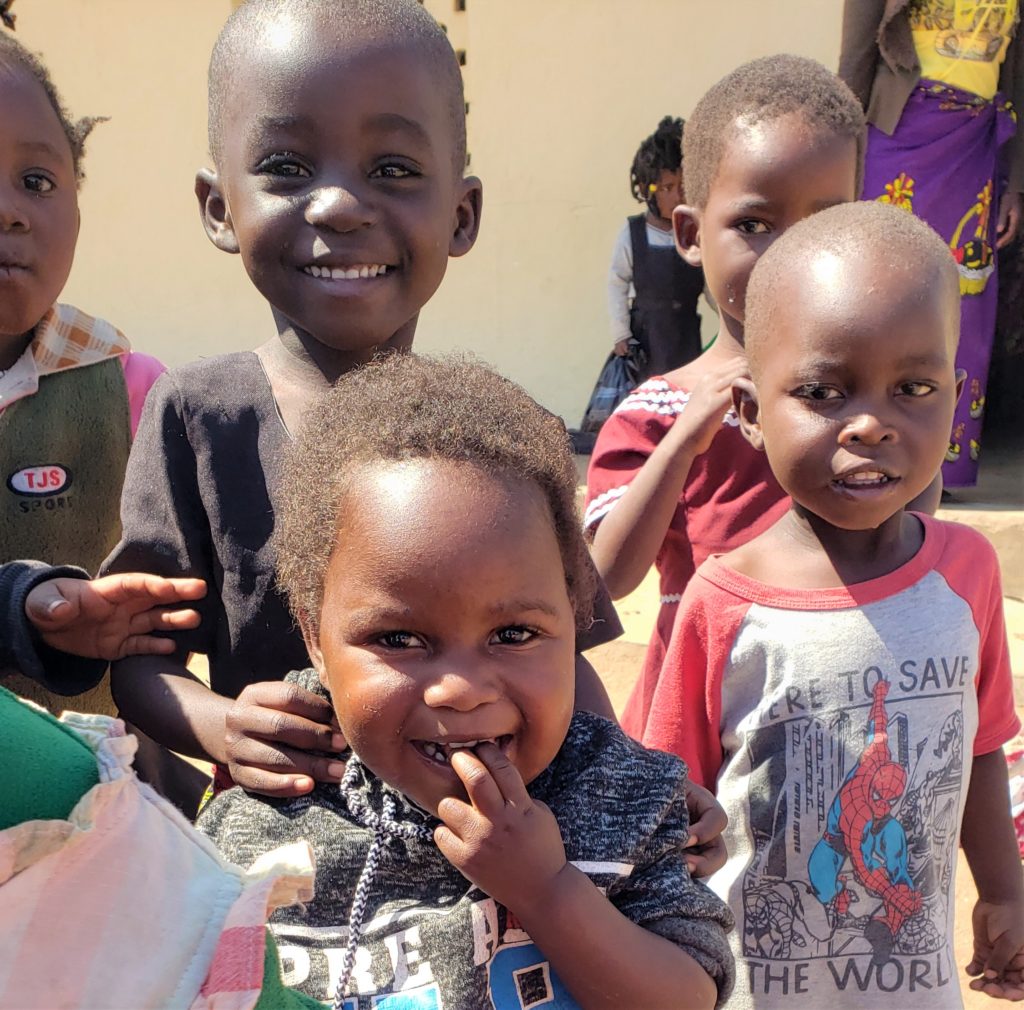
I attended the 25th anniversary of a church I’ve worked with since 2009, watching it grow from a small unroofed building to a beautiful large congregation that was absolutely rocking during their anniversary celebration. I reconnected with pastors who attended the marriage training we provided in 2010 and 2011. They shared with me how that training has transformed their families and their congregations. They are still using this training when they counsel young couples planning to get married. I got to see men hold their children and sit with their wives – all things that are very counter-cultural in Malawi.
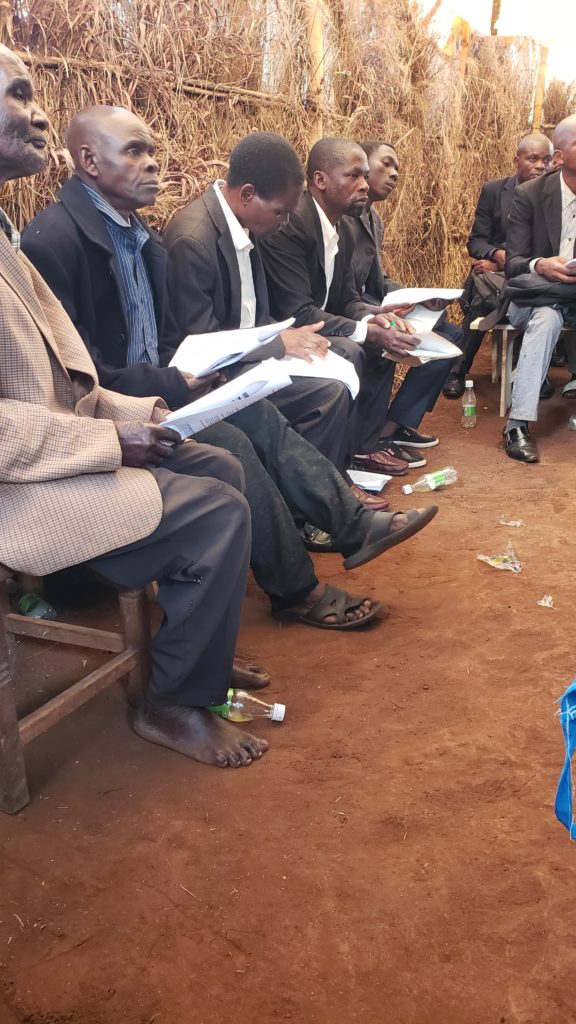
This training transformed the culture. There is a saying in Malawi, “Strong families lead to strong churches; strong churches lead to strong communities; strong communities lead to a strong country.” Malawi as a country is not quite 60 years old, and I was there to celebrate its 50th anniversary.
The pastors want to influence the direction of their country – and in fact, Malawi is probably one of the most stable democracies in Africa, with less corruption than some of its neighbors. Empower’s work influences the direction of the country, turning pastors (and thus families and churches) towards biblical equality, providing teachers in remote areas of the country with practical assistance, and helping people recover from trauma. How amazing to be part of this redemptive work!
A New High School
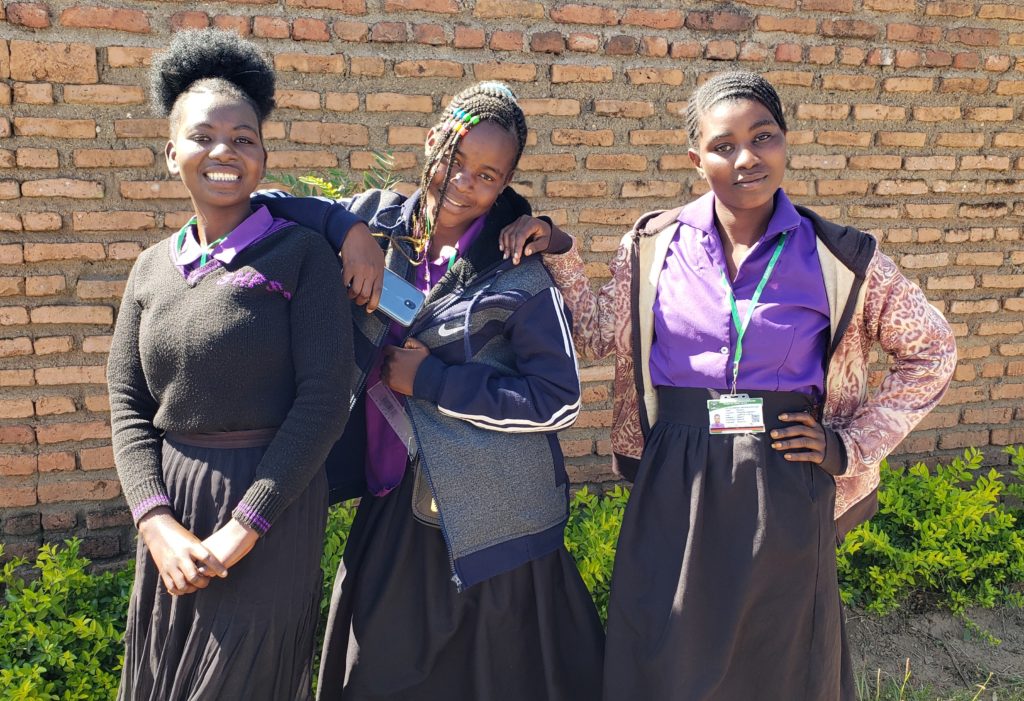
Saratoga Federated Church helped build a high school next door to our orphanage. The only high school for miles, it has a current roster of 240 students and is growing. In fact, they are building new classrooms – on their own without financial help from outsiders. Students must pass a national exam in order to advance from sophomore standing to junior standing. Last year these students far outperformed the national average. I was able to pray for them, and to speak words of blessing for them.
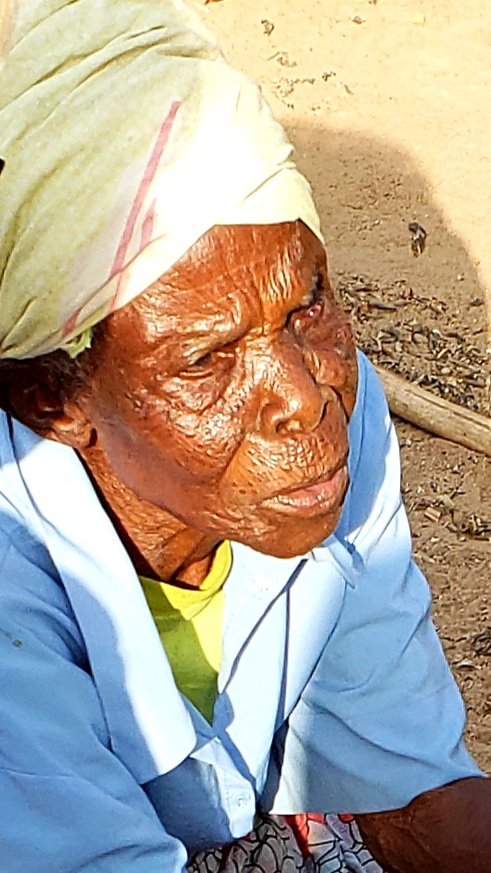
I reconnected with students I met last year. I got to see some of the children from the orphanage we started and see how they are growing and thriving. I reconnected with the village chief, who has welcomed the orphanage and school, making it possible for us to be here. It was such a gift!
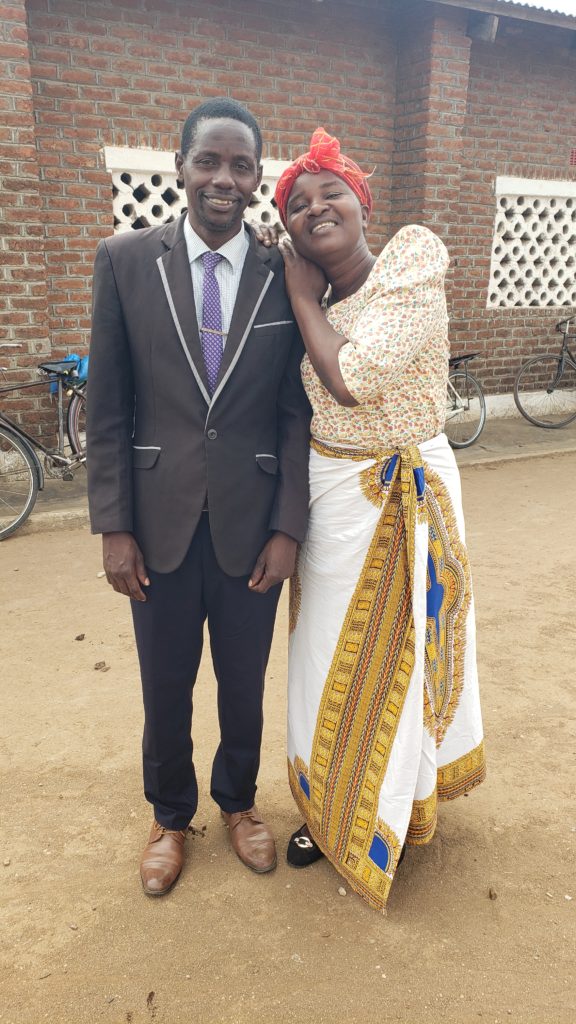 I used my relationship capital to welcome the lead pastor from SFC, Sean Miller. What a joy to show him this country I love, and introduce him to people I love. They embraced Sean and eagerly listened as he taught them how to interpret the Bible. As part of our teaching, we gave 30 pastors a study Bible, a gift of unbelievable riches to most Malawi pastors.
I used my relationship capital to welcome the lead pastor from SFC, Sean Miller. What a joy to show him this country I love, and introduce him to people I love. They embraced Sean and eagerly listened as he taught them how to interpret the Bible. As part of our teaching, we gave 30 pastors a study Bible, a gift of unbelievable riches to most Malawi pastors. 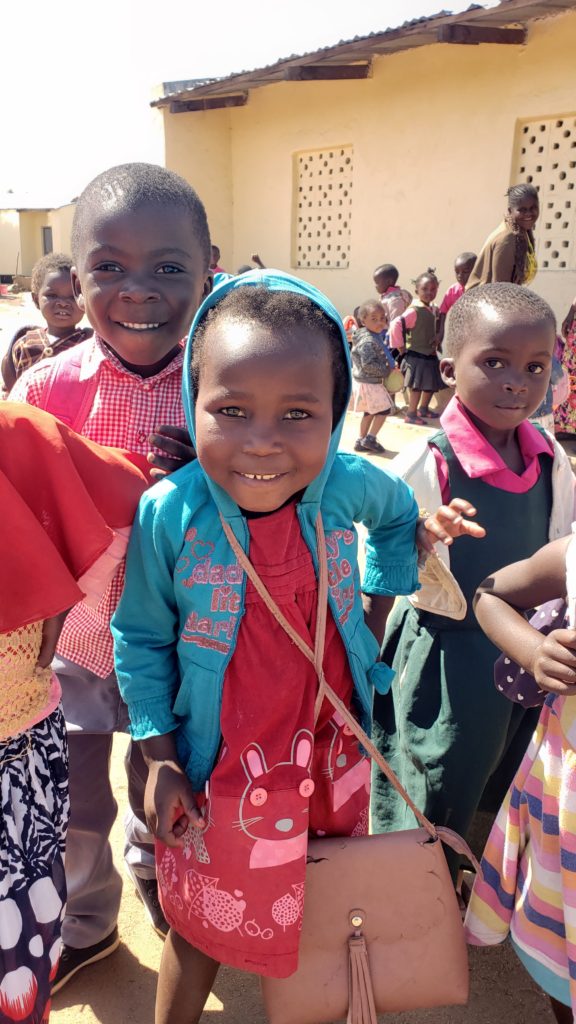
Sean and I were privileged to be the first white pastors – perhaps even the first white people – to enter a village to teach. It was awesome in the biblical sense of that word as well as in our contemporary meaning. It was awesome in that I felt the presence of God, the way he works all things together for good for those who love him, and awesome in that it was so cool to meet these pastors and realize that we were giving them something that would transform their lives.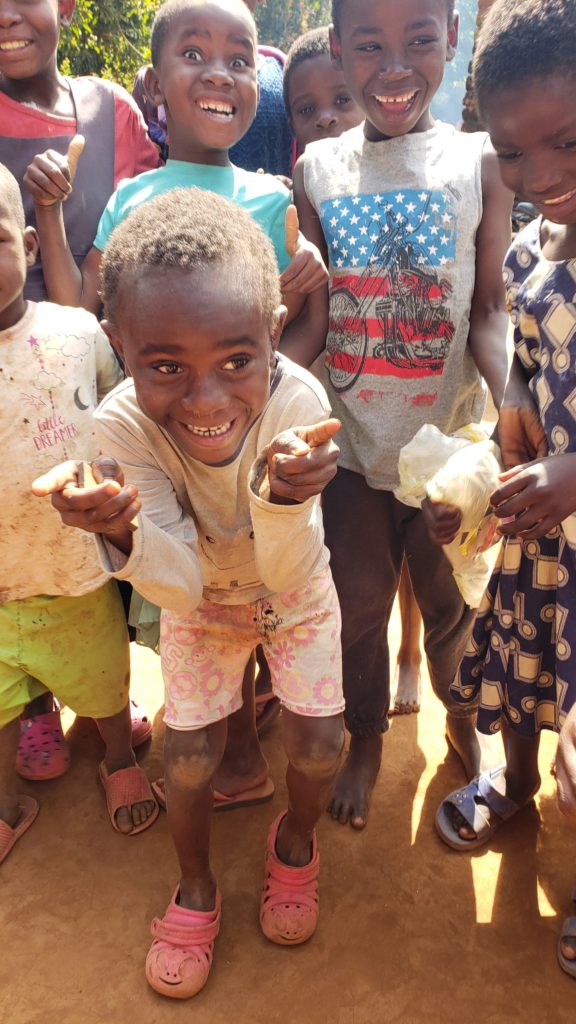
Thank you all for investing in this work – your prayers and gifts make it all possible!
